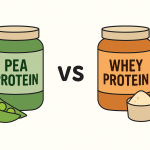Have you ever wondered what does dandelion root do and why it’s considered a powerful natural remedy? Dandelion root has been used for centuries in traditional medicine to support liver health, aid digestion, control blood sugar, and more. This humble plant, often seen as a weed, is packed with antioxidants, anti-inflammatory compounds, and nutrients that may promote your overall wellness.
In this friendly guide, we’ll explore the proven benefits of dandelion root, how it works in the body, current health trends, practical tips for using it, and answers to common questions. Whether you’re an adult looking for natural liver support, a senior aiming for healthy digestion, or a fitness beginner curious about herbal wellness, this post will help you understand dandelion root’s role in daily health.
Dandelion Root: Nutritional Profile and Key Compounds
Dandelion root is rich in inulin, a prebiotic fiber that supports gut health by fostering beneficial bacteria. It also contains antioxidants like beta-carotene and polyphenols, minerals such as potassium and calcium, and bioactive compounds including taraxasterol, which offer anti-inflammatory and antiviral effects. These components work together to boost multiple aspects of your health naturally.
1. Supports Liver and Gallbladder Health
Dandelion root has long been used to promote liver detoxification and aid bile flow, helping the body eliminate toxins and fats efficiently. Traditional herbal medicine treats it as a gentle liver tonic that may protect liver cells and improve gallbladder function, which plays a vital role in digestion.
Benefits:
Enhances bile secretion to support fat digestion
Protects liver health through antioxidant effects
May reduce risk of chronic liver diseases
Many studies suggest dandelion root’s compounds help reduce liver inflammation and oxidative stress, though more large-scale human trials are needed.
2. Aids Digestion and Relieves Constipation
Thanks to its high fiber content, especially inulin, dandelion root supports healthy digestion and bowel regularity. It promotes movement through the digestive tract and acts as a mild laxative to ease occasional constipation.
How it works:
Prebiotic fiber feeds gut bacteria, improving overall gut health
Stimulates stomach contractions aiding nutrient absorption
Reduces bloating and digestive discomfort
People who consume dandelion root tea often report reduced gas and improved digestive comfort.
3. Helps Regulate Blood Sugar
Research shows dandelion root contains compounds that may reduce blood sugar spikes, making it potentially beneficial for people with type 2 diabetes or insulin resistance.
Key points:
Contains inulin and polyphenols contributing to blood sugar control
May improve insulin sensitivity
Supports balanced energy levels throughout the day
Although promising, dandelion root should complement – not replace – medical diabetes treatment.
4. Supports Immune Health
Dandelion root may have antimicrobial and antiviral properties, helping the immune system fight infections.
Immune benefits include:
Reducing replication of certain viruses
Combating harmful bacteria and fungi
Enhancing overall immune response
Ongoing research is exploring dandelion’s potential as a natural immune booster, yet clinical evidence is still emerging.
5. Skin Health and Anti-Inflammatory Effects
Dandelion root extract might protect skin by reducing inflammation and oxidative damage from sunlight and aging.
Skin benefits:
Promotes new skin cell growth
Reduces acne-related inflammation
Supports collagen production and hydration
While most studies are in animals or test tubes, dandelion’s traditional use in skincare is gaining renewed interest.
6. Potential Weight Management Aid
Dandelion root might help with weight loss by acting as a natural diuretic, reducing water retention, and possibly affecting fat metabolism.
Usage tips:
May reduce bloating through increased urination
Can reduce fat absorption enzymes lightly
Should be combined with a balanced diet and exercise
Results vary, and consultation with healthcare providers is important before use for weight purposes.
How to Use Dandelion Root Safely
Dandelion root is commonly consumed as tea, tincture, or supplement capsules.
Start with small amounts to assess tolerance.
Avoid if allergic to plants like ragweed, daisies, or marigolds.
Consult your doctor if on blood thinners, blood sugar, or diuretic medications.
Avoid excessive use during pregnancy without medical advice.
Current Trends in Dandelion Root Use
Growing popularity of dandelion root tea as a detox and wellness tonic.
Inclusion in holistic liver cleanse and digestive support programs.
Use in natural skincare formulations.
Interest in antioxidant-rich plant supplements as preventive health aids.
FAQs about Dandelion Root
1. What does dandelion root do for the liver?
It promotes detoxification by enhancing bile production and reducing oxidative stress.
2. Can dandelion root help with digestion?
Yes, its inulin content supports gut bacteria and helps relieve constipation.
3. Are there any side effects?
Some may experience allergies, heartburn, or interactions with medications. Start slowly and consult a doctor.
4. How do I prepare dandelion root tea?
Use 1-2 teaspoons dried root per cup, steep in boiling water 5-10 minutes.
5. Is dandelion root safe during pregnancy?
Consult a healthcare professional before use, as safety data is limited.
Final Thoughts
Dandelion root is a versatile herbal ally, offering potential benefits for liver function, digestion, blood sugar regulation, immunity, and skin health. Embrace this natural powerhouse by incorporating dandelion root tea or supplements into your wellness routine—mindfully and with professional guidance.
Start today by trying a cup of dandelion root tea to support your body’s natural detox and digestive processes. Your liver—and your whole body—will thank you for the gentle yet effective herbal boost!








